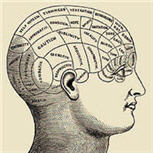To Market To People, You Also Must Market To Algorithims
Engagement models must incorporate algorithms, because algorithms could be the most influential force destroying linear decision-making processes among consumers. But it's rare to find an engagement enthusiast (who are mostly mass brand and media types) get far past linear decision models.
You Must Market To Algorithms, Not Just People
by Max Kalehoff, December 15, 2006
The most elegant insight at the Word of Mouth Marketing Association’s annual confab in Washington, D.C. earlier this week came from Ted Leonsis, vice chairman of AOL. He noted that “Marketing isn’t just to people anymore. You have to market to algorithms.” He backed this up with a few examples of algorithms that have significantly influenced his own purchase and life decisions: Google, blog search, car diagnostic systems and Amazon recommendation engines.
Leonsis’ comment underscores a growing and inextricable link among algorithms, their interactions with people, and influence on broader information flow among people (a good topic for a conference on word-of-mouth marketing). As more human behaviors emit trails of digital residue, the more opportunities reside for algorithms to harness those human-induced data and become information intermediaries, often delivering order, additional value or influence. Many so-called Web 2.0 services fall into this realm, but the essence of algorithms and their interactions with humans extends far beyond conventional notions of Web browser-based services. They are becoming embedded and central to a variety of smart products and services that impact our lives in both subtle and blatant ways, from phones to GPS mapping services to medical devices to RFID tagging systems.
This concept is terribly important to marketers that must now rebuild their consumer decision-making models. The old linear decision models are becoming irrelevant, and must be replaced with new ones that incorporate not only overt word-of-mouth behaviors, such as face-to-face discussions or online consumer discussions, but all behaviors that create halos of metadata, which algorithms process, mediate and disperse to others.
The bottom line is that algorithms now are entrenched in our lives and influence what information we search, discover, share, communicate, receive and believe. Algorithms are increasingly defining our perceptions and reality, and we often don’t realize when this process is going on. The impact can be subtle or massive, immediate or lagging, narrow or broad. Consequences can be intended or calculated, but are often chance.
Search is among the most obvious marketing discipline to embrace algorithms, but their application most often is focused on short-term, direct-response tactics modeled around rational decision-making. But the fact is that algorithms are having a massive, macro impact that marketers must embrace deeper and more holistically–even on emotional and psychological levels. Yes, even the mass-market brand advertisers’ singing engagement must tackle algorithms in order to adapt to changing consumer mental models.
The subject of algorithms is far too broad to tackle further in this short opinion column, but I’ll sign off by presenting some obvious algorithms tapping into my metadata, along with others’, to impact my purchases, media-consumptions habits and other life decisions:
- The Zagat restaurant guidebook, through its member surveys, database and search algorithms, helped me choose more than four dozen restaurants to visit this year.
- Download.com, a software-download and review service from CNET, helped me choose almost a dozen PC software titles through its search function, user reviews, ratings and, especially, the total-download stats.
- The New York Times real-estate database listened to my criteria and recommended houses to suit my needs. I’m now in contract to purchase one of the houses it introduced me to.
- My stay at the Helix hotel in Washington, D.C. this week was completely the result of Expedia’s algorithms, including criteria for search, price, coolness, user ratings and proximity to the WOMMA conference.
- My wife and I are researching nannies and related services based on search results and testimonials displayed on parenting boards.
- Music playlists help me discover new music, to sample and purchase.
- GPS mapping services in cars help me decide which roads to take, which towns to pass through and which stores to stop in.
- Social-media filters and recommendation engines–like Digg and Tailrank–help me decide which news and information is most resonant or important, or which photos and videos are most interesting.
- EZPass highway tags record and notify me every month how much I pass over toll roads and bridges, and how much money I dish out to our public transportation authorities. Becoming conscious of those aggregate fees has influenced me to sometimes take alternative side routes.
- My credit-card company’s algorithms identified fraud and notified me about it, so we could work together to chase down criminals. Another credit-card company didn’t, and now I don’t do business with them.
Which algorithms do you notice impacting your purchase and other life decisions? Which are most noticeable? Which are invisible or subtle, yet sweeping? Better yet, are you marketing to them?

0 Comments:
Post a Comment
<< Home